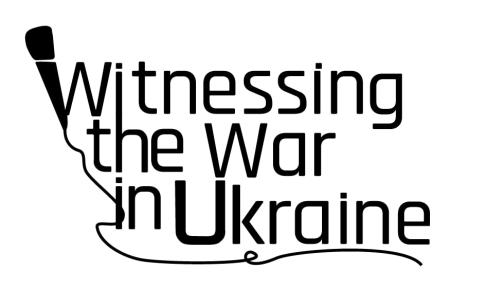Witnessing the War in Ukraine 13.06.2023
Summer Institute in Villa Decius

From 12-16 June, Villa Decius hosted an international conference "Witnessing the War in Ukraine: Vectors of Reflection, Practices of Documentation" organised by Canadian Institute of Ukrainian Studies, University of Alberta (Canada) Lund University (Sweden), Riksbankens Jubileumsfond (Sweden), Konrad-Adenauer-Stiftung Warsaw (Poland), Institute of Sociology, Jagiellonian University (Poland), Dobra Wola Foundation (Poland), Ukrainian Oral History Association (Ukraine) and Polish Oral History Association (Poland).
In response to the unfolding humanitarian trauma caused by the Russian full scale invasion of Ukraine launched on 24 February 2022, researchers in humanities and social sciences have stepped forward and engaged in active collection of evidence and testimonies. The war in Ukraine is so far the most well-documented modern military conflict, which poses a range of questions and challenges. What are the ethical implications of this ‘rapid scholarly response’ to the war? How do researchers conceive of and partake in fieldwork in these times? What does witnessing imply under current circumstances? How has witnessing been facilitated, framed, instrumentalized and reflected upon on various scales and in different contexts?We see it as our professional and ethical obligation to continue the initiative we introduced last year to further facilitate the exchange of the academic expertise in oral history, ethnography, interview research and research of witness literature, and share knowledge with a broad and evolving community of practitioners working in various local settings.
Over the course of five days, invited presenters and participants will engage in a series of presentations and workshops examining current trends in scholarly and creative reflections on witnessing the war in Ukraine. Invited speakers and faculty will lead such discussions focusing on witnessing the war and reflecting on its impact via various media, scholarly and creative practices, including film, theater, journalism, ethnography and autoethnography, oral history and storytelling. Invited participants will be offered opportunities to discuss their work with other members of the institute.
In response to the unfolding humanitarian trauma caused by the Russian full scale invasion of Ukraine launched on 24 February 2022, researchers in humanities and social sciences have stepped forward and engaged in active collection of evidence and testimonies. The war in Ukraine is so far the most well-documented modern military conflict, which poses a range of questions and challenges. What are the ethical implications of this ‘rapid scholarly response’ to the war? How do researchers conceive of and partake in fieldwork in these times? What does witnessing imply under current circumstances? How has witnessing been facilitated, framed, instrumentalized and reflected upon on various scales and in different contexts?We see it as our professional and ethical obligation to continue the initiative we introduced last year to further facilitate the exchange of the academic expertise in oral history, ethnography, interview research and research of witness literature, and share knowledge with a broad and evolving community of practitioners working in various local settings.
Over the course of five days, invited presenters and participants will engage in a series of presentations and workshops examining current trends in scholarly and creative reflections on witnessing the war in Ukraine. Invited speakers and faculty will lead such discussions focusing on witnessing the war and reflecting on its impact via various media, scholarly and creative practices, including film, theater, journalism, ethnography and autoethnography, oral history and storytelling. Invited participants will be offered opportunities to discuss their work with other members of the institute.

